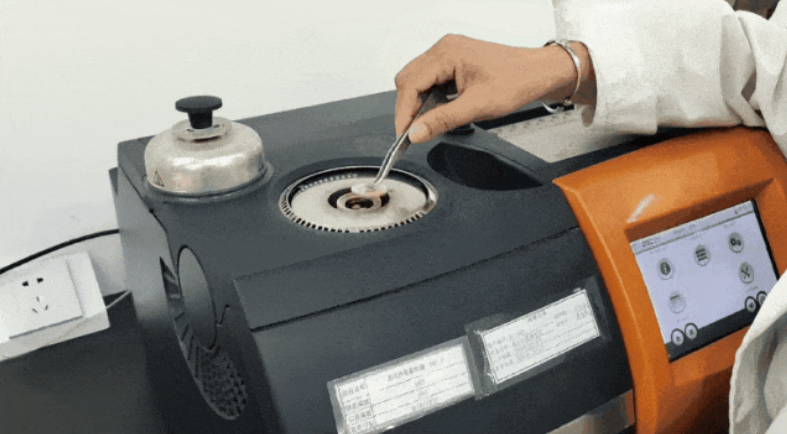-
International Quality Selection | Excellent Intelligent Manufacturing and Quality Assurance Behind A&E High Precision Testing Tools (Part 3)
Release time:2024-11-24 News section:Company News
-
We have detailed the specific methods and significance of A&E's detection of various types of resin materials and carbon fiber products through various detection methods such as "high-precision moisture determination", "fully automatic refractive index detection", "DHR rheological testing", and "product microstructure analysis" based on the previous two reports.
It is not difficult to see that various high-precision testing tools are like the "quality guardians" of enterprises. In addition to ensuring the excellent quality of products, they also reflect A&E's extraordinary intelligent manufacturing capabilities.
Today, let's enter the A&E's R&D Testing Laboratory for the third time to further understand the high-precision testing tools and methods that safeguard quality.
Differential Scanning Calorimetry Test

Differential Scanning Calorimetry (DSC) is an important test conducted by Zhongshan Rongnan for various resins. This test measures the relationship between the power difference and temperature in the form of heat input to the sample and reference material under program-controlled temperature. Through this test, various thermal effects that occur during the heating process of the resin can be observed, and indicators such as the glass transition temperature (Tg), crystallization temperature (Tc) and crystallinity, melting point stability (Tm), and reaction heat of the resin sample can be measured. And these indicators are extremely important for the quality control process.
Differential scanning calorimetry testing is of great significance for the quality control of Zhongshan Rongnan's products1、Through testing, it can be ensured that the thermal performance of the resin meets the requirements for producing carbon fiber prepreg, ensuring excellent and stable quality of prepreg and finished products.2、When developing new carbon fiber prepreg, differential scanning calorimetry can quickly and accurately analyze the thermal properties of different formulation resins, providing key data for R&D personnel to optimize formulations and improve product performance.3、Differential scanning calorimetry testing is also an important supplier evaluation tool, providing us with decision-making basis for selecting the most suitable supplier and ensuring the quality of raw materials.Digital impact test

The digital impact test plays a key role in the testing of carbon fiber laminates by A&E. The working principle of this experiment is to release a mechanical pendulum from a certain height and impact the carbon fiber laminate specimen fixed on the test bench. During the impact process, the energy of the pendulum will be transferred to the specimen, causing it to deform until it is destroyed.
Through testing, the ability of carbon fiber laminates to absorb energy, that is, impact toughness, can be accurately obtained. At the same time, the sensor records the force displacement curve during the impact process, allowing us to understand the deformation behavior of the specimen during the impact process, such as whether delamination or fiber fracture occurs.
Digital impact testing is an important means of testing carbon fiber prepreg. It can ensure that the impact toughness of the product meets relevant standards and customer requirements, and can also test products produced under different process parameters through digital impact testing, thereby optimizing the production process and providing key performance data for R&D personnel.
-
Related
information
-
-

Precise Control | Excellent Intelligent Manufacturing and Quality Assurance Behind A&E High Precision Testing Tools (Part 2)
The comprehensive use of high-precision detection tools is an important manifestation of A&E's pursuit of excellent intelligent manufacturing and superior quality.
-

Excellence in Manufacturing and Quality Assurance Behind A&E High Precision Inspection Tools (Part 1)
Step into A&E and gain a deeper understanding of the high-precision testing tools and methods that safeguard quality.
-

Fashionable and Cool | A&E Carbon Fiber Shared Bike Embarks on a New Trend of Green Travel for Employees
A&E Shared Bicycle, Full of Technological Content
-

Improving Quality with Intelligence | A&E Industrial X-ray Testing Process Protects High end Quality
The use of industrial X-ray equipment for quality inspection of carbon fiber products is an important manifestation of A&E's strict quality control.
-



